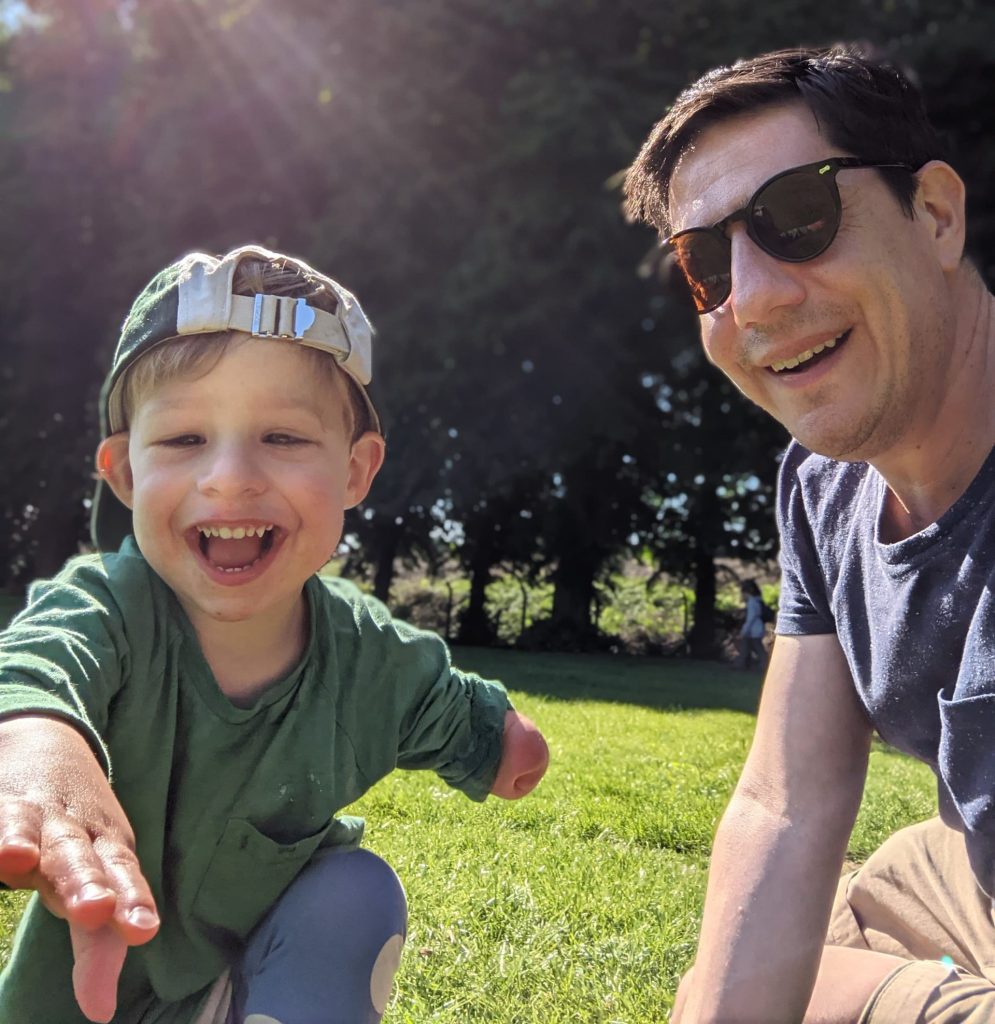We’re preparing for potty-training. Not ours, you understand – our son’s. Kit is two-and-a-half and has no lower left arm beyond his elbow joint. I think we, like so many parents before us, had hoped this particular change might just pass us by… And yet, somehow, it’s no longer even on the horizon.

It’s here. Now. So here we go again, fretting and researching and feeling optimistic and then fretting and so on and so on, as with every milestone we’ve passed getting to this point. We worried about him managing to sit up. He sat up. We worried about him being able to crawl. He crawled. We worried about him pulling to stand, and then walking. He pulled to stand and he walked. And now he runs. Everywhere. All the time. His mother and I like to think of ourselves as creative individuals, and the evidence is there to suggest this is true. We’ve both been fortunate to forge careers and enjoy hobbies in which our ability to imagine and create has been fundamental. We hope we’ll be able to pass this thread of creativity on to Kit. So why do we also, sometimes, fail to imagine what our child is capable of? Talking about this in terms of a ‘failure of imagination’ might sound harsh, but it feels appropriate. As adults who have only ever coped with two hands, it’s hard for us to conceive how someone might manage with fewer. But that doesn’t mean we shouldn’t try and imagine it. To a limb different adult, or older child, witnessing this kind of unimaginative thinking must sometimes be exasperating, if not infuriating. Assuming that fundamental human developments can only be achieved by very specific types of bodies is not only unimaginative, it’s also ignorant. It effectively erases legions of people who were born, progressed through childhood, and led perfectly happy adult lives – while living with all manner of differences. After all, this is the kind of closed-mindedness we hate to witness in other people when they talk about our child. We won’t hesitate to correct someone who questions whether Kit can climb up some steps in order to go down a slide, or whether he’ll be able to ride a bike. But while we correct others aren’t we also, sometimes, questioning it ourselves? All I can put it down to is the fact that whether a child has a limb difference or not, parents worry. The worry is similar to the way a car’s daytime running lights remain on while it’s ‘awake’. Sometimes a parent’s worry is low-powered, sometimes it’s blinding. But it’s always on. Sure, it’s limb difference-related some of the time, and sometimes it’s not. Often it’s hard to discern what, precisely, we’re worried about. And if I’m really honest I think Kit’s limb difference is almost incidental to our fears at the prospect of potty-training. Because we’ve heard the stories from other parents, you see. We know for sure that in our future there will be poo in places where poo would, ideally, not be found. And the prospect of errant poos is enough to make anyone feel a bit nervous, surely?

